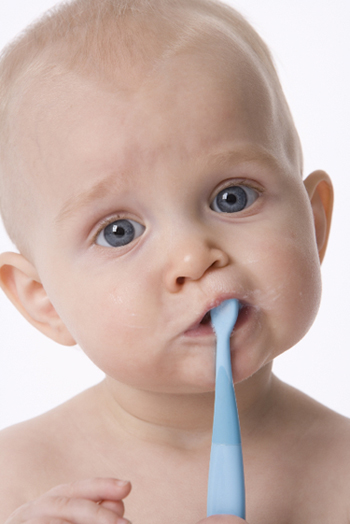 Parents understand, experts in the field of pediatric dentistry understand…but how do you get kids to understand the importance of brushing their teeth? The topic of pediatric dental care is one that most parents wrestle with from time to time. As children grow and become more independent they often want to start brushing their teeth by themselves. While it’s important to encourage independence, thorough brushing and comprehensive oral health care is vital to setting children up for a lifetime of good dental health.
Parents understand, experts in the field of pediatric dentistry understand…but how do you get kids to understand the importance of brushing their teeth? The topic of pediatric dental care is one that most parents wrestle with from time to time. As children grow and become more independent they often want to start brushing their teeth by themselves. While it’s important to encourage independence, thorough brushing and comprehensive oral health care is vital to setting children up for a lifetime of good dental health.
Keep those smiles healthy with good dental care that starts during childhood.
Aside from solid teeth-brushing skills, there are other oral hygiene basics that children need to learn. A combination of brushing, flossing and mouthwash to kill germs and prevent plaque buildup forms a three-prong approach that can help your child for lifelong habits that contribute to the best dental health possible. Similar to any other important skill you want to teach your children, learning to properly brush their teeth and follow other dental care practices is something that requires effort on your part. Incorporate these tips to help you teach your kids to brush their teeth and form other habits that lead to a healthy mouth.
Remember, good dental habits start when we are young. Teach your children to properly care for their teeth, and they will take care of them for life!
· Get Started Early. Good tooth brushing skills should actually begin before your baby even has teeth. Even before your baby introduced to solids you can start cleaning his or her gums after each feeding by wiping them down with a damp piece of sterile gauze. Doing so keeps the gums clean and healthy, while introducing early dental care to your child. Between the ages of 12 and 18 months, it’s time to start brushing your child’s teeth with a soft-bristled child’s toothbrush. Use water only to gently brush the teeth, making sure to get to the molars in the back of the mouth. Your child is likely to clamp down on the toothbrush and that’s a normal part of the process. Buy child-friendly toothpaste. Adult toothpastes with tartar control and whitening properties often don’t taste good to children. So, invest in toothpaste for kids. They come in glitter, different flavors, and feature different characters on the tubes.
· Quality Counts. Brushing well is more important than brushing often. Use the Rule of Three to guide your tooth brushing efforts. Help your young child brush his or her teeth at least three times each day for three minutes at a time. When your little one turns three years old, start using a pea-sized amount of toothpaste teach your child to spit it out.
· Make Dental Care Enjoyable. Little children learn best through play. While tooth brushing is serious business, it’s best to keep the time with your child lighthearted and fun. Use an egg timer to time the length of brushing and let your child be the one to start it. Sing favorite songs while helping him or her brush their teeth. Use a mirror so your little ones can watch their own tooth brushing efforts. When boredom starts to set in, add a little excitement by introducing a new toothpaste, toothbrush or making a game of dental care. Buy children their own toothbrush. There are dozens of toothbrushes on the market, available in sizes for infants to adolescents. They come in all different colors, some have cartoon characters, and some even light up and play music. If your child helps pick out the toothbrush they like, they are more inclined to want to brush their teeth. When it comes time to brush, get the whole family involved. Children, especially little ones, love to imitate grown-ups. If the entire family brushes their teeth at the same time, children are more likely to brush, and also witness the positive example their parents are providing.
· Introduce Other Oral Hygiene Techniques. As soon as your child’s teeth are touching it’s time to start flossing them. Take turns with dental care by allowing preschool children to brush, followed by you taking a turn to floss. Once your child turns six years old, he or she can take over the flossing and start using mouthwash.
· Positive Reinforcement. It won’t be until much later that your child brushes his or her teeth purely to have a clean mouth and fresh breath. Until these more mature motivations start to kick in, use positive reinforcements such as sticker charts or stars to acknowledge your child’s efforts. Encourage your child to accumulate stickers to reach specific goals and then let him or her pick a small prize out of a dental care treasure box, such as a new toothbrush or another inexpensive item. Don’t make going to the dentist a scary prospect. Children pick up on their parents’ anxieties, and will pay attention to words like “hurt” or “pain.” If kids think going to the dentist is an adventure, they will be more likely to enjoy going, and will go their whole lives!
If you have any questions on children’s dental care, please contact our office at 712-239-5125. Feel free to ask questions or share opinions and other ideas or techniques on our facebook page.

